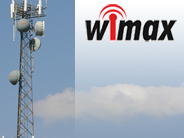
Baltimore is going live October 8 with Sprint Nextel's Xohm WiMAX broadband wireless service. In fact, if youre willing to front some cash for computer plug-ins, you can get it now, before the official launch. Customers can access the network as soon as they install the devices.
The Baltimore launch is the first in a $5-billion nationwide network that Sprint announced before it decided to partner with Clearwire. That joint venture, which also includes Comcast, Time Warner, Intel, and Google, is expected to become reality by the end of this year and begin operations in 2009. The Federal Communications Commission is still deciding whether to allow the deal.
In Baltimore and Baltimore County about half of the Xohm network is completed. Sprint is also pushing ahead with WiMAX installations in Washington, D.C., Boston, Chicago, Providence, Rhode Island, Philadelphia and the Dallas-Fort Worth market.
WiMAX is like Wi-Fi on steroids. Though they share portions of their name, they are different critters altogether. For one thing, WiMAX is good over a much larger distance. The acronym fleshes out to Worldwide Interoperability for Microwave Access. The result is broadband-level speed over a wireless (ahhhhhhhh!) network. As physical cables have become increasingly expensive, Cable TV and telecommunications companies have been trying to figure out a wireless way to deliver major bandwidth. Indeed WiMAX has been suggested as a way of delivering broadband to sparsely populated areas that would otherwise be unprofitable.

Not everyone agrees that Sprints onto something big with the Xohm projects. For example Cnet, ever the bean counter, reported:
...Even though Sprint is competing directly with fixed broadband providers, it is not offering customers a huge discount. The home service, which requires users buy a $79 WiMax modem, costs $25 initially, but will eventually be priced at $35 per month. It's also offering a mobile only service, which requires users buy a $59 WiMax wireless card for their laptop. This service starts at $30 and will increase to $45 after six months. The combination service, which allows users to share their bandwidth with other users at home and also offers mobility, will initially cost $50 a month. But the price is expected to eventually jump to $65 a month.
These prices are not drastically different from other broadband options. In Baltimore, Comcast offers a 6Mbps download service for about $43. Verizon Communications offers a 3Mbps DSL service for about $30 a month.
Thats where I lifted the illustration, too. I got the cool Hot Spot lettering from www.xohm.com. What this means for those of us who dont live in Baltimore is that 4G is coming soon to a carrier near you. This counting Gs business is ridiculous, already, so lets stick with the abecedarian alternative. Besides, WiMAX only arguably increments the Generation thing.
Currently, WiMAX is mostly for fixed stations like a home or a business, since theres not (yet) any handoff between WiMAX and traditional cell phones when you move out of range. There could be, and probably will. Besides, with all those big guns behind it, the technology is sure to find a cozy little place in all our wallets.
To their credit, Sprints pursuing a whole new business model on this one. No contracts! From the companys official press release:
- No long-term commitments or contracts
- Monthly home, on-the-go and day-pass Internet plans available
- Multiple WiMAX access devices are covered by a single charge;
- WiMAX devices are purchased like any other computing/consumer electronic devices
WiMax doesnt work on existing cell phones off air cards. It requires new hardware. Thats coming, too. In time. Everything in time.